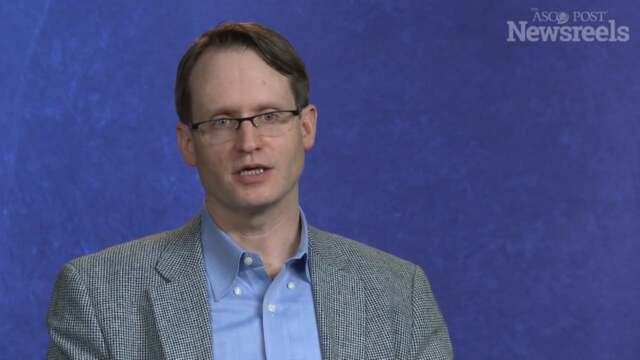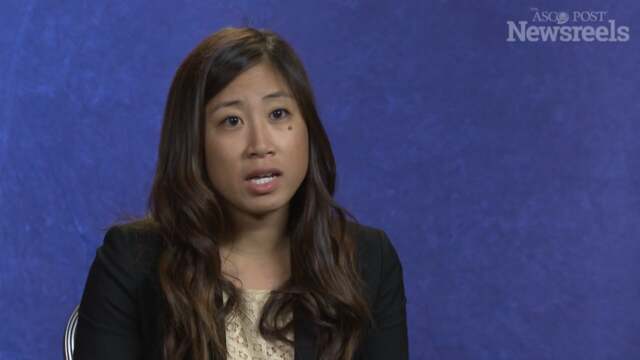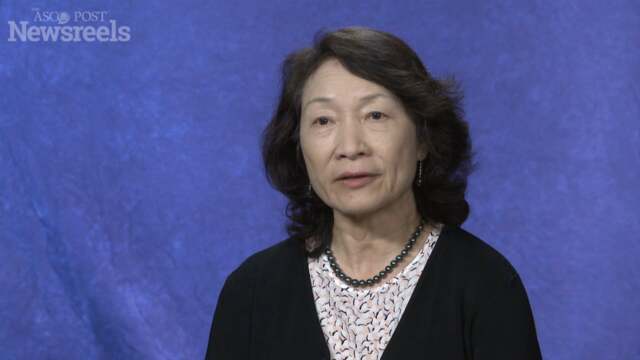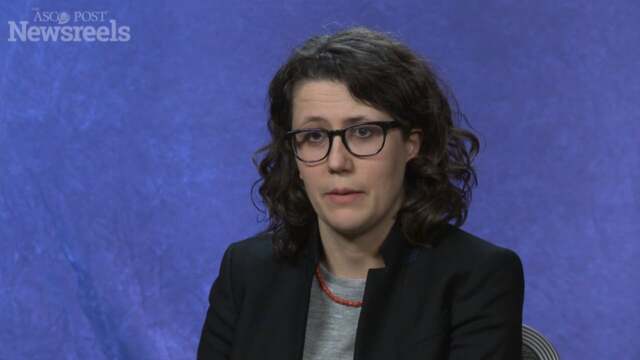Shraddha M. Dalwadi, MBA, on Stage I NSCLC: Racial Disparities in Treatment and Outcome
2017 Multidisciplinary Thoracic Cancers Symposium
Shraddha M. Dalwadi, MBA, MD Candidate in the class of 2017 at Texas A&M Health Science Center, discusses findings from a SEER database study that showed African Americans and American Indians with stage I non–small cell lung cancer were less likely to receive definitive treatment and had lower odds for survival (Abstract 9).
Maximilian Diehn, MD, PhD, of Stanford School of Medicine, discusses promising clinical applications of circulating tumor DNA in patients with thoracic malignancies: noninvasive detection of resistance mechanisms to targeted agents and treatment response assessment.
Jennifer Ho, MD, of The University of Texas MD Anderson Cancer, discusses study results on the use of intensity-modulated proton therapy, which can provide durable local control with minimal toxicity in patients who can have extended survivals; the data also suggest that higher doses may improve outcomes (Abstract 5).
Zhongxing Liao, MD, of The University of Texas MD Anderson Cancer Center, discusses the continued improvement in planning, delivery, and patient selection for proton therapy, which can both reduce radiation exposure and increase tumor dose.
Zofia Piotrowska, MD, of the Massachusetts General Hospital Cancer Center, discusses heterogeneity and variation in resistance mechanisms among EGFR-mutant non–small cell lung cancer patients with at least one postresistance biopsy (Abstract 1).
Tracey L. Evans, MD, of the University of Pennsylvania, discusses the data supporting use of chemotherapy with radiation in locally advanced non–small cell lung cancer, targeted treatments and immunotherapy, and some of the controversies now debated.





